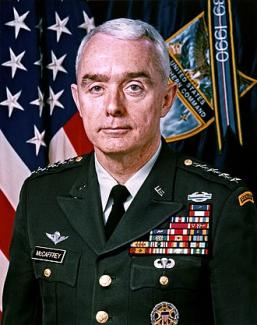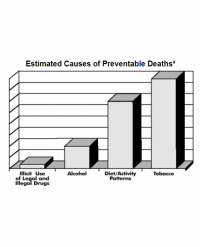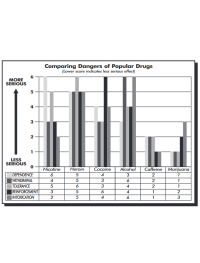Is Truth a Casualty of the Drug War?
The Public Service Advertisements below ran from 1999 to 2007, focusing on misinformation in the drug war.
The Common Sense public information campaign carefully quoted credible research and leading authorities so as to provide the public with reliable information and to better inform the debate on drug policy. CSDP's PSAs ran in Reason, The American Prospect, The National Review, The Nation, The New Republic, and The Progressive.
Please note: These PSAs may be reproduced in whole or in part without permission and with or without attribution provided the meaning is faithfully maintained.
| 022 | Protecting kids? | "Protecting kids?" This ad challenges the often heard justification for the drug war, drug prohibition protects children, with some sobering facts. Also available in Portable Document Format (PDF). | 
|
| 021 | What do we tell our kids? | "What do we tell our kids?" This ad answers the issue that opponents of needle exchange use as their primary argument against needle exchange. Now that the science shows needle exchange reduces AIDS, does not increase drug use and helps get people into drug treatment, opponents of needle exchange argue exchanges send a bad message to our kids. Our view -- tell the kids the truth, it may save their lives. Also available in Portable Document Format (PDF). | 
|
| 020 | St. Valentine's Day For Whom? | "St. Valentine's Day For Whom?" Last St. Valentine's Day the United States surpassed two million people behind bars. This means the US will account for 1/4 of all the prisoners in the world. This record high level of incarceration is driven by the war on drugs. The purpose of this ad is to highlight these facts and ask the question: Are we becoming a police state? Also available in Portable Document Format (PDF). | 
|
| 019 | Time To Resign | "Time To Resign." General Barry McCaffrey consistently misstated the facts on key drug policy issues without apology when he is corrected. While we pointed out these factual errors we also applauded him when he has taken sensible positions, e.g. methadone (Pinocchio) and mandatory sentences (Let Judges Judge). Reports of his efforts to inject drug war messages into the media by paying for scripts and reviewing scripts in advance (Has the Drug Czar Bought the Media), as well as his efforts to involve the US in the Colombian civil war convinced us that it was time for General McCaffrey to resign -- he undermined too many basic American values in the name of the drug war. Also available in Portable Document Format (PDF). | 
|
| 018 | Let's Keep America's Drug Problem in Perspective | "Let's Keep America's Drug Problem in Perspective" compares preventable causes of death and asks why we do not apply criminal solutions to the most common. Available in printer-ready Portable Document Format (PDF). | 
|
| 017 | Ending the drug war is popular | "Ending the drug war is popular" is a column by CSDP President Kevin Zeese on changing attitudes toward our failed drug policy. "Americans recognize the drug war is not working: gangs and cartels are getting richer; adolescents have easy access to drugs, overdose deaths are at record highs. We are spending too much on a policy that doesn't work." Available in printer-ready Portable Document Format (PDF). | 
|
| 016 | It is time to admit the war on drugs has failed | "It is time to admit the war on drugs has failed" is an open letter, signed by a wide-range of public interest organizations, which was sent to Congress as part of a series of spending recommendations. The entire set of appropriations recommendations can be reviewed by clicking here. This ad is also available in printer-ready Portable Document Format (PDF). | 
|
| 015 | Mandatory Sentencing is Bad | "Mandatory Sentencing is Bad" quotes Supreme Court Justice Breyer, ONDCP Director Barry McCaffrey and Joseph Califano on mandatory sentencing. These strong supporters of America's drug war feel that the mandatory sentencing regime should be abolished. Available in printer-ready Portable Document Format (PDF). | 
|
| 014 | Controlled Access to Heroin | "Controlled Access to Heroin" explains the result of the Swiss national vote to continue allowing medical doctors to prescribe heroin to heavily addicted people. Research shows that people who do not respond to abstinence or methadone programs can successfully control their addiction to heroin if they are prescribed small, maintenance doses of the drug, while undergoing counselling & therapy. Crime, poverty and homelessness all decreased for people in this program. Available in printer-ready Portable Document Format (PDF). | 
|
| 013 | Do our drug laws focus on the truly dangerous drugs? | "Do our drug laws focus on the truly dangerous drugs?" first appeared in The New Republic on September 13, 1999. The ad compares the danger of various popular drugs - based on data developed by Dr. Jack Henningdield for NIDA. Available in printer-ready Portable Document Format (PDF). | 
|
